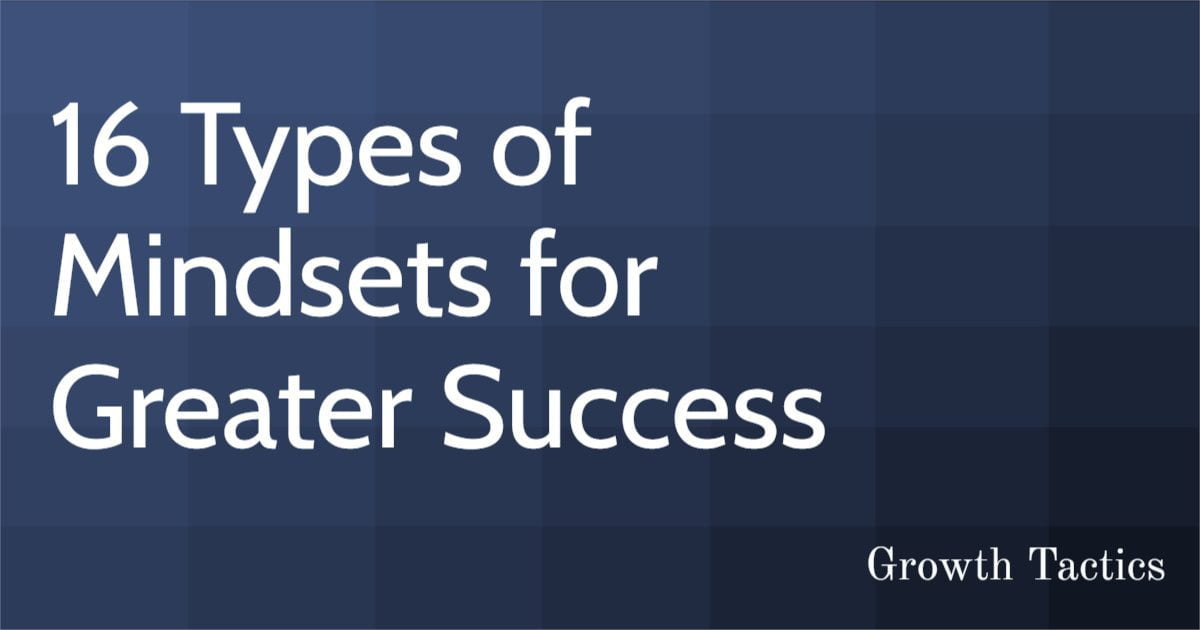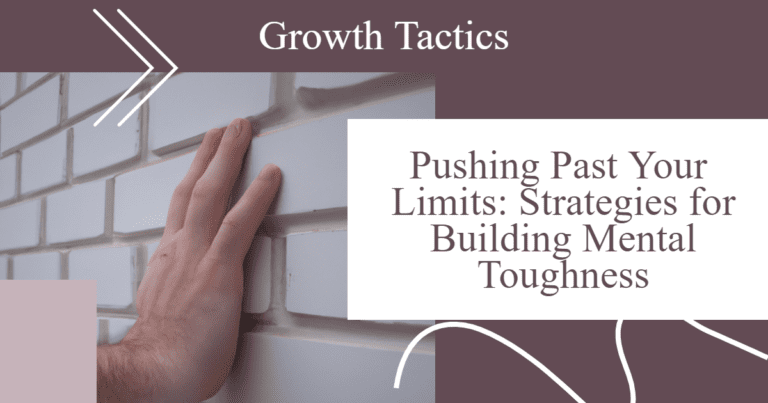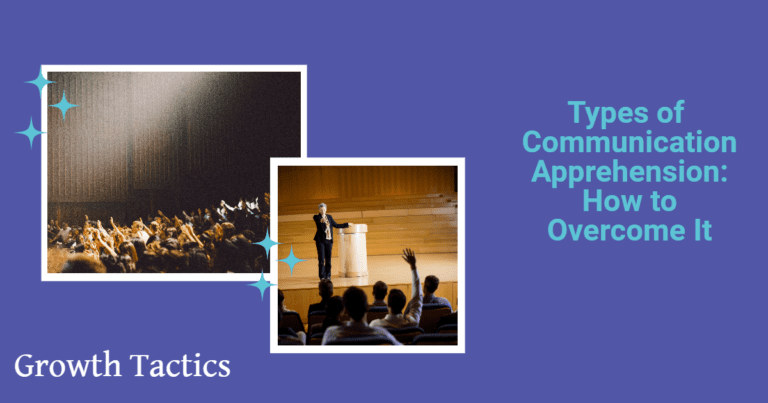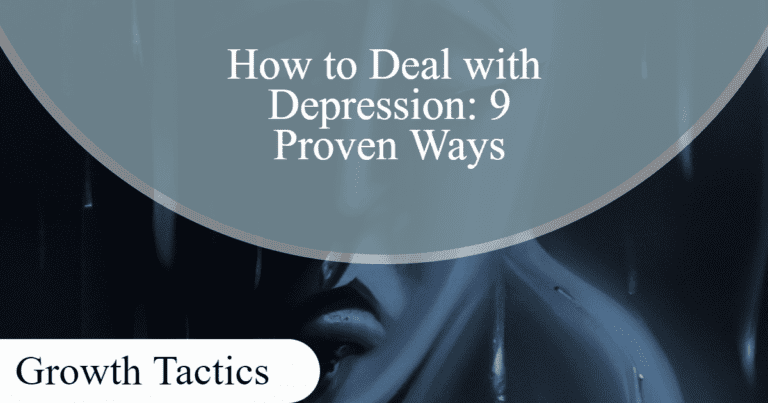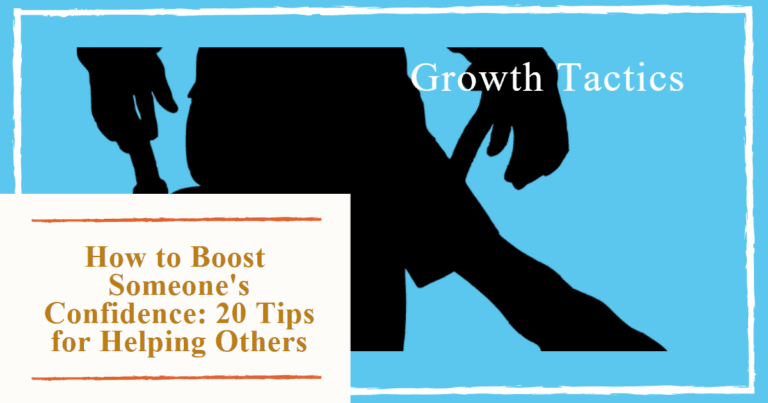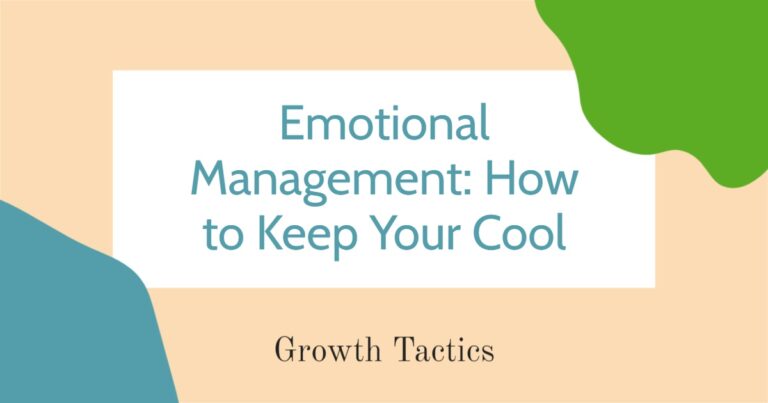Mindset is a key factor in success. It can help you achieve your goals and dreams, or it can hold you back. The problem is that most people don’t understand their mindset and how important it is to their lives. In fact, many people don’t even realize they have a mindset at all!
In short, mindset is everything because it impacts every aspect of your life. From health to happiness to success at work and in business.
In this article we will discuss various different types of mindsets and ways you can have a more positive and successful mindset.
Jump To Section
The Impact of Mindset

Mindset is the way you think about yourself, your capabilities, and your future. It’s the way you think about your life. It’s the way you think about your opportunities. And it’s also how you think about relationships with others and with yourself. Understanding the psychology behind mindset will contribute to developing a more growth-oriented approach in your life.
The power of positive emotions goes far beyond mere happiness, acting as a cornerstone for a fulfilling life. These emotions transform our approach to life’s challenges, encouraging a mindset geared towards growth and resilience. By fostering positive feelings, we unlock the ability to learn new skills, navigate change, and see opportunities in adversity.
Embracing positive emotions not only enriches our personal experiences but also expands our ability to connect with others and achieve our goals, showcasing their transformative impact on our journey towards a positive outcome in various aspects of life.
What Types of Mindsets Exist?
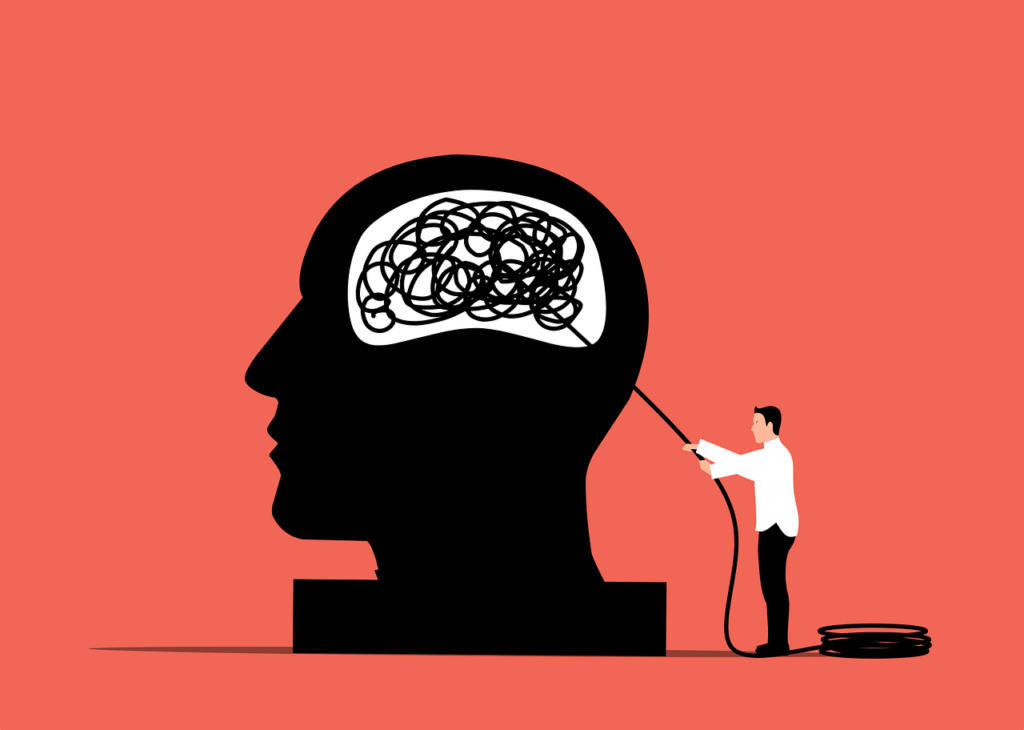
Type #1: Fixed
The concept of a fixed mindset is something that most people have never heard of, but it’s actually the most common mindset in our society. A fixed mindset is when you believe that you are born with a certain amount of talent and that you can’t really change that much. On the other hand, developing a growth mindset means believing that effort and experience can greatly enhance your abilities.
This means if you have a fixed mindset, you will not try new things because you might fail and that will make feel bad about yourself. This also means that you will not try new things because they might be too difficult for you and you don’t want to embarrass yourself.
The problem with this mindset is that it makes life very boring and unrewarding because there is no growth or improvement possible. You won’t learn anything new, try new things, or push yourself outside of your comfort zone.
See Related: Mindset is Everything: Bring More Success and Happiness
Type #2: Entrepreneurial
The entrepreneurial mindset is a unique way of thinking that encompasses a set of characteristics and attitudes necessary for success in entrepreneurship. You don’t necessarily need to be an entrepreneur to have this type of mindset. It involves being proactive, seeking opportunities, and being willing to take risks.
Entrepreneurial thinkers are often highly innovative and open-minded, constantly looking for ways to improve and adapt their business ideas. They possess a strong drive and determination to overcome obstacles and find creative solutions to problems.
Additionally, entrepreneurs have a strong sense of resilience, as they are prepared to face failure and learn from it. Ultimately, the entrepreneurial mindset involves a combination of passion, vision, creativity, and a desire to make a difference in the world.
Type #3: Growth

A growth mindset is a belief that your basic qualities are things you can cultivate through your efforts. It’s the idea that intelligence, character, and personality are malleable. While some people will be naturally gifted in certain areas, others will have to work hard to improve their abilities.
To have a growth mindset, you must believe that:
- Your abilities are not fixed;
- You can develop new skills and talents;
- You can become smarter or more creative if you try harder; and
- Intelligence is malleable rather than static (i.e., it’s not just about how smart you were at birth).
Type #4: Negative
The negative mindset is a mindset that is pessimistic, negative and focused on the bad things. People with this mindset, often a fixed mindset, experience a lot of stress and anxiety because they are constantly thinking about all the things that could go wrong. Cultivating a confident mindset helps in focusing on solutions rather than problems. They are often afraid to take action because they fear failure. They believe that if something bad happens, it will be their fault.
This type of person can be very hard on themselves and others, so their lives are filled with negativity instead of joy and hope.
Type #5: Positive
A positive mindset, or “positive thinking” is a way of thinking that helps you to see the good in everything and everyone. It can also help you to overcome challenges by seeing them as opportunities.
Positive thinkers are generally happier and more optimistic than people who think negatively. They also tend to have better relationships with others because they are more supportive and encouraging. It’s easy to see why a positive attitude is so important!
There are many benefits of having a positive mindset, including:
- Increased happiness
- Better health
- High levels of success
See Related: Reframing Negative Thoughts w/ Examples (Be Happier)
Type #6: Abundance

The abundance mindset is a belief that there is enough for everyone. When you have an abundance mindset, you believe that you can get what you want because there’s plenty to go around. You believe that your success doesn’t take away from anyone else’s and vice versa.
This type of thinking is crucial to achieving greatness because it frees up your mind to focus on achieving your goals instead of worrying about how others are doing or how they feel about your success.
Type #7: Confidence
Confidence is the mindset of believing in yourself, your abilities, and your potential. It’s about knowing that you are capable of achieving great things, no matter what anyone else thinks or says.
It’s not just believing that you will succeed. It’s also believing that if something doesn’t go according to plan, then it’s OK because there are other ways to get where you want to be. A confident person knows that setbacks are temporary. Something they can learn from and move on from quickly.
Type #8: Social
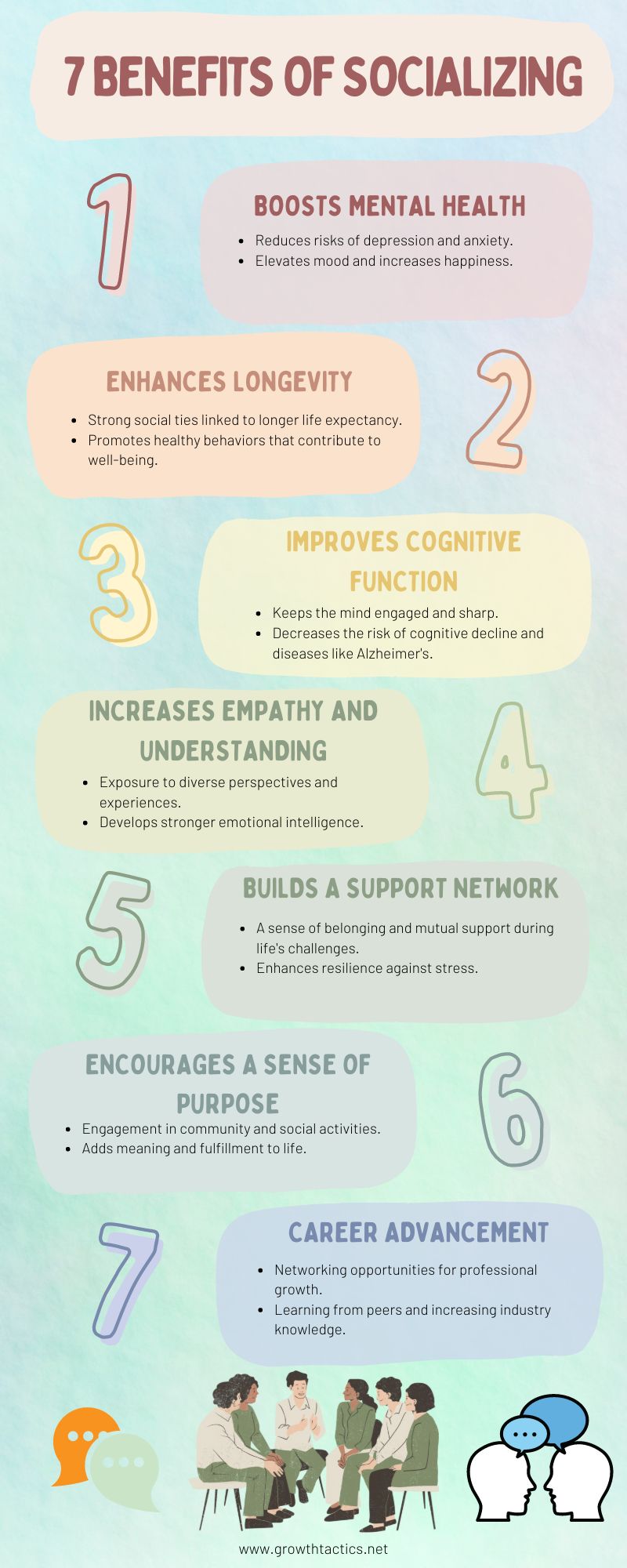
The Social Mindset is all about being part of a community. It’s the mindset that you are a part of a group and you’ll succeed or fail based on how well your group does. This is the same for being part of a family, team, association, or movement. You will get more done when you are able to work together with others who share similar goals and aspirations as you do.
Type #9: Fear
A fear mindset is when you always expect the worst and are afraid of failure and what other people think. It’s also when you are constantly worried about disappointing other people.
When you have a fear mindset, it can hold back your success because this type of thinking will cause you to make bad decisions and take actions that aren’t in line with your goals or vision. For example, if your goal is to start a business but every time you try to do something new or creative, you’re afraid that people won’t like it or think poorly of it.
The reason why having a fear mindset can hold you back is because it will prevent you from trying new things, taking risks, and reaching your full potential. Instead of focusing on what could go wrong or worrying about other people’s opinions, focus on how to make your goals happen.
Type #10: Lazy
A lazy mindset is when you are not motivated to do anything. You don’t want to work hard or put in the effort. You don’t want to learn, and you certainly don’t care about doing better than everyone else. As a result of this attitude, you end up being less successful than those who do not have such a mindset.
Type #11: Angry

Anger is a negative emotion that can be sparked by frustration, a threat to your values, or a perceived injustice. When you feel angry, your body releases adrenaline and cortisol into your bloodstream. These hormones are designed to help you fight or flee from danger. This can give you an instant boost of energy that may help if the danger is real. However, if the danger isn’t real and the anger continues unabated long after it should have dissipated. Then those negative emotions will wreak havoc on your physical health and psychological well-being
Type #12: Jealous
A jealous mindset is a feeling of envy, a form of negative self-talk. Jealousy can be considered a form of fear, anger, and selfishness. When you are jealous, you may think that someone else has something you do not have or will not give it to you because they are “too good for everyone else”.
The problem with jealousy is that it limits your potential and makes you feel like you cannot access the same opportunities as someone who has been successful in their field or endeavor
Type #13: Productive
A productive mindset is a mindset that is focused on producing results. A productive mindset is a mindset that is focused on achieving goals. A productive mindset is a mindset that is focused on getting things done.
The productive person thinks and acts in a way that moves them from where they are to where they want to be. The productive person does not sit around waiting for things to happen but rather makes things happen through their own effort and initiative. They take action because it leads them closer to the vision of their success, even if it means overcoming obstacles or criticism along the way.
A productive person understands that work can be hard sometimes but they also understand the importance of doing what needs to be done in order for things to get done. To become more productive, remember two simple truths: 1) We must stay focused on our goals and tasks at hand. 2) We must always maintain an attitude of determination toward our achievements.
See Related: 8 Tips to Improve Your Multitasking Skills and Get More Done
Type #14: Dreamer
The dreamer mindset is about being imaginative and creative. It’s about being able to imagine the impossible and then make it happen. It’s about being able to imagine the future, your ideal self, and life, which gives you the motivation to work towards it. And when you have a dreamer mindset, nothing feels impossible because you’ve already done it in your mind before actually doing anything!
One of the most important things about having a dreamer mindset is that it allows you to be creative. When you’re able to think outside of the box and come up with new ideas, solutions, and approaches, your life will become much easier! You’ll be able to find solutions for problems that seem impossible, and this can help improve almost any area of your life.
Type #15: Follower
If you have a follower mindset, then you’re likely to be afraid of taking risks, especially when it comes to your career. You might feel like you’re on the outside looking in and that others are making decisions for you. You may not feel qualified enough or confident enough in your abilities to pursue opportunities on your own, which could hold you back from being successful.
A follower is someone who lacks confidence in themselves and their ability to succeed on their own terms. They don’t want the responsibility of making decisions for themselves because they’re more comfortable letting others make those choices for them.
They aren’t willing to take charge of their lives or take risks with their careers because they fear failure so much that they’d rather settle than fail at something new or different. Something that would require them to step outside their comfort zones into uncharted territory where anything goes!
Type #16: Gratitude
A gratitude mindset is a positive mindset that can help you find the good in every situation. It’s a mindset of thankfulness, appreciation, and abundance.
- You’re grateful for all the things you have
- You’re thankful for what others do to support you
- You make time to appreciate the little things in life like your morning coffee or even just having a roof over your head.
See Related: How Gratitude Can Help You Through Hard Times
Type #17: Creative
A creative mindset is a positive mindset that allows you to think outside the box. A creative mindset is one where you can think creatively, allowing ideas to flow freely. This will help you develop greater success in your life and business, as well as take steps towards reaching your goals by thinking differently than most people do.
This type of mindset can lead to lots of success in business and life. You will be able to get out of your own way and think more creatively. This will help you to come up with new ideas, solve problems more effectively, and be happier in life overall.
The Importance of Understanding Your Mindset
Recognizing the nature of your current mindset is crucial for personal and professional growth. By grasping the type of mindset you hold, you can navigate through challenges more effectively, make smarter choices, and secure more favorable outcomes. Deep insight into your mental state empowers you to succeed in areas of life that are most significant to you. Understanding your mindset is a key step towards realizing your aspirations and overcoming any hurdles that come your way.
Unlocking Your Potential: The Power of Mindset Shift
Mindset shifts can unlock a world of new opportunities and successes. Let’s get into how you can achieve this transformative change.
Embrace the Growth Mindset
If you believe your abilities are static, you’re in a fixed mindset. But if you see challenges as chances to improve, you’re welcoming a growth mindset. Embrace the latter. Believe in the power of “yet.” Maybe you haven’t conquered your goals yet, but with an open mindset, you’re on your way.
See Challenges as Opportunities
Every hurdle in your path is a chance to grow. Cultivating a challenge mindset means seeing difficult circumstances not as insurmountable obstacles but as opportunities. When you stumble, ask, “What can I learn?” instead of telling yourself, “I can’t do it.”
Celebrate the Success of Others
Joy in the achievement of others is a hallmark of a success mindset. Instead of feeling threatened by the success of others, use it as motivation. Think, “If they can do it, so can I.” This will shift your perspective from a scarcity mindset, believing there’s not enough success, to recognizing abundance.
Replace Pessimism with Optimism
A pessimistic mindset sees limitations; an optimistic mindset sees possibilities. Train your brain to look for the silver lining. This doesn’t mean ignoring difficulties but focusing on positive outcomes even in tough times.
Embrace Continuous Learning
In our rapidly changing modern world, acquiring new skills is essential. View life as a continuous learning process. Embrace new experiences and perspectives. The more open you are to learning, the more adaptable you become to near-constant change.
Cultivate Gratitude
Develop a sense of gratitude. This simple yet profound mindset shift can transform your view of your life and abilities. By focusing on what you have, rather than what you lack, you’ll foster a positive outlook that attracts more positive experiences.
Reframe Fear of Failure
Fear of failure holds many back. Flip this on its head by viewing failure as part of the learning process. Every setback is one step closer to success. Embrace it. Learn from it. Move forward.
Practice Positive Self-talk
Your words have power, especially the ones you say to yourself. Shift from a self-critical to a supportive inner voice. Replace “I can’t” with “I can,” or “I’m learning.” This positive self-esteem feeds into every area of your life, fueling success and personal growth.
Changing your mindset takes time and effort, but with self-awareness and a determination to cultivate a growth-oriented and positive mindset, you can create a more fulfilling and successful life.
Conclusion
In conclusion, it’s important to understand the different types of mindsets and how they affect your success. Start looking at your mindset and determine if it’s fixed or growth, negative or positive. If it’s fixed, focus on changing your thinking and getting into a growth mindset. If it’s negative, try to focus on the positive aspects of life and how they can help you get through any situation.
Did you enjoy this article on the different types of mindsets? Share and subscribe below.


